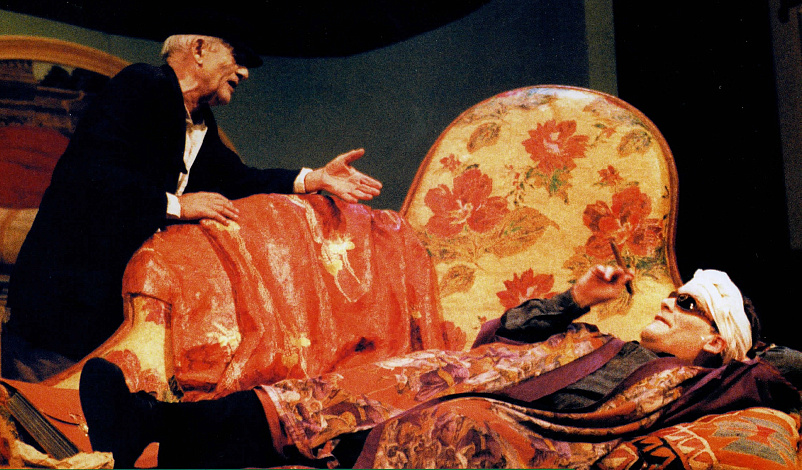| Art Direction and Set Design | Matthias Langhoff |
| Costume Design | Catherine Rankl |
| Light | Piero Niego |
| Assistant director | Sophie Proust |
| Music | "Gogol Suite" By Alfred Schnittke |
| Italian translation | By Vittorio Franceschi From The Adapted French Version By Andre Markovitch |
| Cast | Eros Pagni, Muriel Mayette, Emmanuelle Wion, Federico Vanni, Marco Sciaccaluga, Roberto Aiinghieri, Aldo Ottobrino, Jean-Marc Stehle, Vittorio Franceschi, Antonio Zavatteri, Jurij Ferrini, Ferruccio Soleri, Rachid Zanouda, Marco Zanutto, Trinidad Iglesias, Marco Campora, Marcello Capanna, Fahrizio Imparato, Salvatore Loddo, Fahrizio Montalto, Diego Paoli, Maurizio Taverna, Desiree Tesoro, Paola Cialdella |


Matthias Langhoff was born in Zurich in 1941 to a German family in exile. In 1945 the family returned to Germany. Fr om 1961 to 1969 Langhoff worked as director and set designer at the Berliner Ensemble. His productions there include Bertolt Brecht’s "Mahagonny-Opera", "The Buying of Brass” (Der Messingkauf), "The Breadshop" (Der Brotladen); and Aeschylus' "The Seven Against Thebes". He directed numerous productions in Germany, France, Switzerland, Italy, Netherlands, among these: Schiller's "The Robbers", Shakespeare's "Othello", Ibsen's "The Wild Duck", Heiner Mueller's "The Battle" (Die Schlacht) and "Tractor" at the Volksbuehne Berlin, Germany; Brecht’s "Brotladen" at the Theatre d’Aubervilliers, France; Ostrovsky's "The Forest" at the Schauspielhaus Zurich, Switzerland; Shakespeare’s "King Lear" at the Theatre Ro, Rotterdam, Netherlands; "L'ile du Salut" (Island of Salvation) based on Kafka’s "Penal Colony" at the Theatre de la Ville, Paris, France; Strindberg’s "Dance of Death" at the Comedie Francaise, Paris, France. From 1989 to 1991 he headed the theatre of Vidy-Lausanne (Switzerland). Productions there include Shakespeare’s "Macbeth", Webster’s "The Duchess of Amalfi", and Brendan Behan’s The Hostage”. In 1993 he was co-director of the Berliner Ensemble.
But the production also has a second level. The traitor is disclosed during the Mayor's ball which celebrates his daughter's engagement, a scene accompanied by a funeral march. The Mayor himself, addressing the spectators - who can laugh about him -, smears a cake through his own face. And here the real inspector arrives - the same Jurij Ferrini